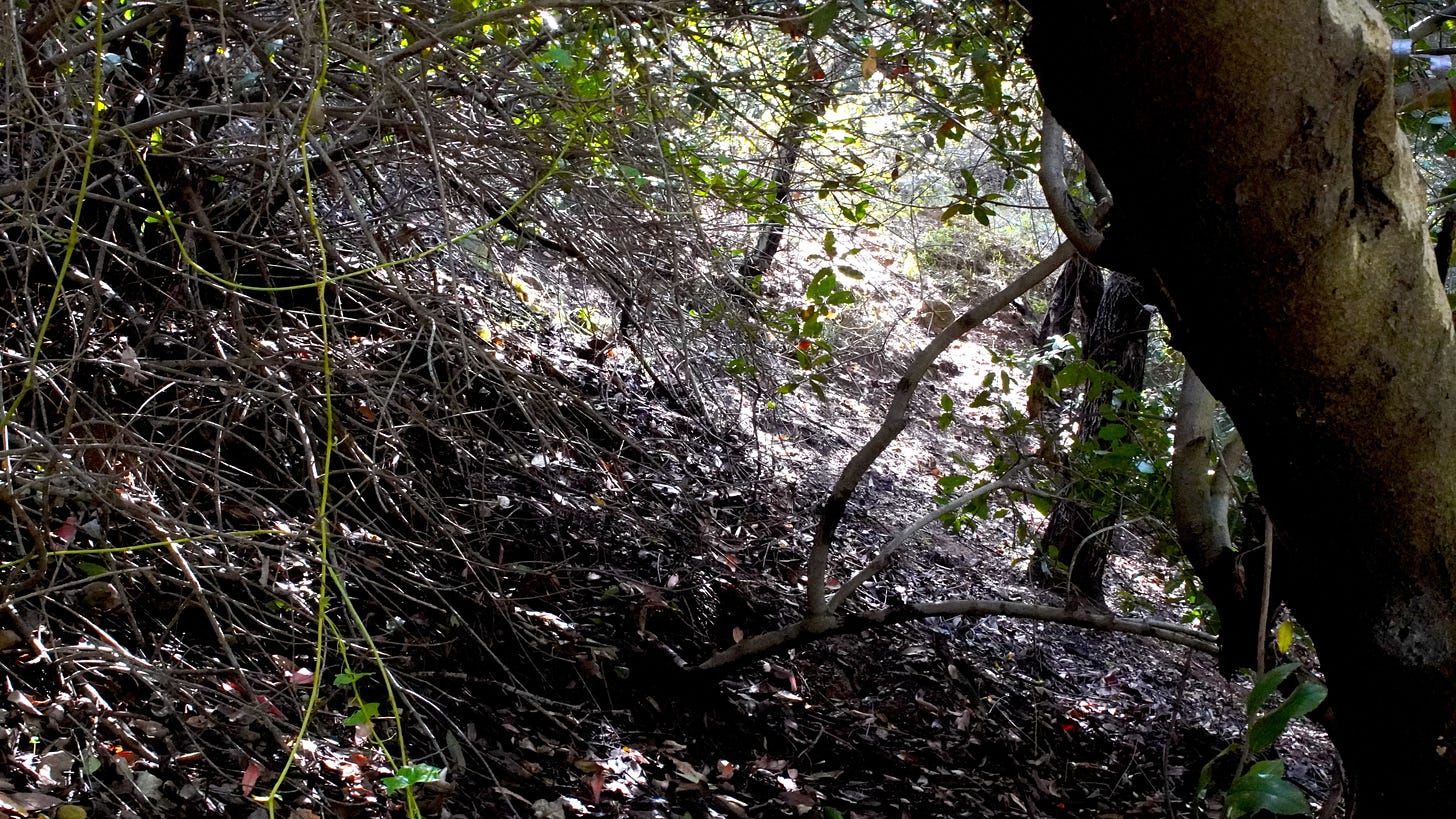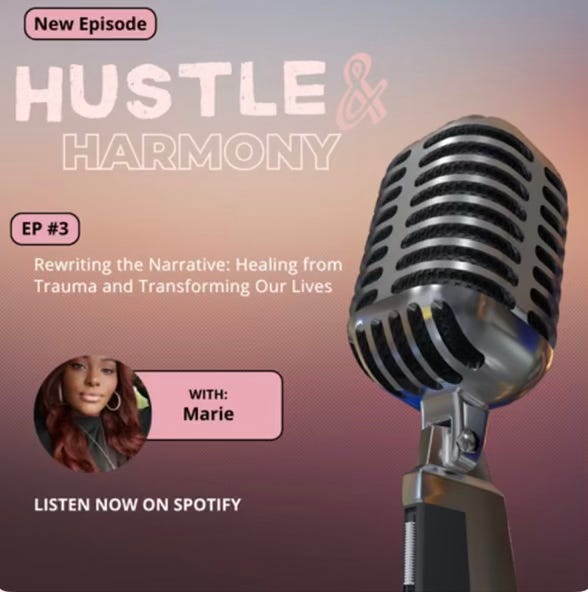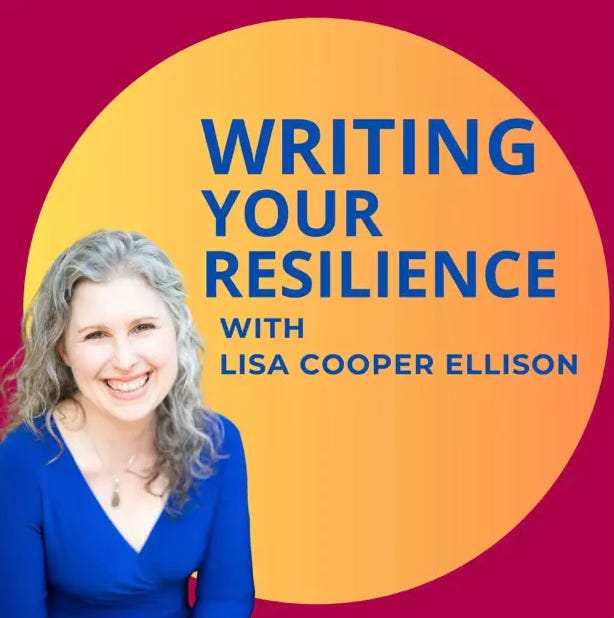Writing is an intuitive journey. One absorbs the world around them, transforming it into the fuel that propels the creative process. Good writers tap into inspiration they didn't even realize was there, drawing from depths unknown to craft their narratives. Even better writers understand that a part of you must always be listening, watching, pulling out the material that matters, identifying the subtext, and bringing that to the page.
That's more challenging to do than ever. Social media scrolling alters one's brain chemistry—the neural pathways fracture. Long-term attention is a practice, these days a discipline. Most of us have let those neurons atrophy. It's like an old DVD player you last used seven years ago. The circuitry corrodes over time and won't play anymore after a few uses.
Trauma is like that. It paralyzes you and keeps you frozen in a moment, a bespoke feeling hell all your own that plays out in an endless loop. No one else can come or go. Isolation, dissociation, and often substance abuse all erode your ability to listen. They keep you from the spontaneity needed to engage with the world creatively and with drive. Without the ability to access your natural abilities, your circuitry corrodes. Over time, after so much life and trauma, you shut down because it's just too difficult to keep trying.
Trauma is a scourge on our nation as it is on our souls. I started this newsletter to share scientifically backed data to show just how creativity can help heal trauma. I've done that somewhat sporadically. I've been healing from my trauma and found that the only thing I could share was moments from my path out of it.
Recently, I started microdosing Ketamine. It's been a game-changer. It's like it cleaned out the corrosion of the connections, and now information flows in a way it never has. I'm not healed, per se, but I'm better. It's allowed me to gain a perspective on this healing business. I've been writing about the hard work of healing for the past three years, but now I can see how to create something more universal. Now, I can see my way back to the newsletter's original purpose.
I will provide resources that can help you on your own journey. Whether you're curious, looking for inspiration, or need a lifeline for your healing, I'll curate articles, services, and media to enrich your life and, hopefully, your creativity.
It will come out once a week for now. There may be more, depending on how it goes and if time allows. At the end, a paywall will also be in place, containing more personal free-range content and eventually including videos and podcasts. I'm working on one right now that I'm excited to share.
I've changed the pay structure to help make it more accessible for people. Monthly will be $8 and yearly will be $50. Please consider joining. I'm looking to build a community of curious, dedicated, healing people who want to support one another even as they are looking for support. If you want to be a part of the community, but can’t swing the cost, please private message me. I’d be happy to gift you a membership.
This week's newsletter is about the science behind writing, specifically, to help heal trauma.
Without further ado, I’d like to begin by sharing an article from the Harvard Review:

Writing Can Help us Heal from Trauma underscores the profound impact expressive writing can have on healing and processing trauma. Highlighting the therapeutic benefits of writing, the piece emphasizes how detailing personal experiences not only helps individuals navigate their emotions but also contributes to physical well-being. Backed by research, the article suggests that writing about emotional experiences can lead to significant improvements in mental health, including reduced stress, anxiety, and depression. Moreover, it explores the transformative power of narrative, suggesting that by articulating their stories, individuals can reclaim agency and meaning in their lives. The article offers practical writing exercises and prompts aimed at fostering healing and self-discovery, emphasizing that expressive writing serves as a vital tool for navigating collective trauma and envisioning post-pandemic futures.

The 'Write' Way to Heal: Ten practices for transforming emotional pain and re-authoring your life (Psychology Today) delves into the therapeutic potential of expressive writing, emphasizing its profound impact on emotional, spiritual, and existential healing. Grounded in both scientific research and ancient contemplative practices, such as scriptio divina, the article advocates for writing as a sacred practice that can facilitate profound transformation and self-discovery. Whether it's processing trauma, exploring identity, or finding meaning in adversity, the article posits that writing offers a powerful pathway to healing and resilience.
When you’re done with those, here are some great podcasts I’ve discovered and that have informed and encouraged me.
Stories of How We Cope with Chaos: This comes out of the pandemic archives, but I still think it has relevance for anyone healing from trauma.
The podcast explores how we cope with chaos. It delves into our innate tendency to create order out of randomness and questions the narratives we’ve been taught about our propensity for self-destruction. The stories shared challenge conventional beliefs and shed light on our resilience during difficult times.
Hustle & Harmony: (From episode description) join Marie as she explores the profound impact of unhealed trauma on our lives and relationships. ‘Rewriting the Narrative’ delves into the stories we carry with us, examines how trauma can influence our career choices and lead us down paths of overextension and burnout in our quest for validation. Whether you're dealing with personal trauma, facing its effects in your relationships, or feeling its weight in your professional life, this episode offers a compassionate guide to breaking the cycles, healing the wounds, and writing new chapters of strength, growth, and fulfillment.
Writing Your Resilience: (From episode description) The Writing Your Resilience Podcast is for anyone who wants to use the writing process to flip the script on the stories they’ve been telling themselves, because when we tell better stories about ourselves, we live better lives.
Every Thursday, host Lisa Cooper Ellison, an author, speaker, trauma-informed writing coach, and trauma survivor diagnosed with complex PTSD, interviews writers of tough, true stories, people who've developed incredible grit, and professionals in the field of psychology and healing who've studied resilience.
If you’re so inclined, I sure would enjoy a coffee today! Hugs
Keep reading with a 7-day free trial
Subscribe to The Creativity To Heal to keep reading this post and get 7 days of free access to the full post archives.







